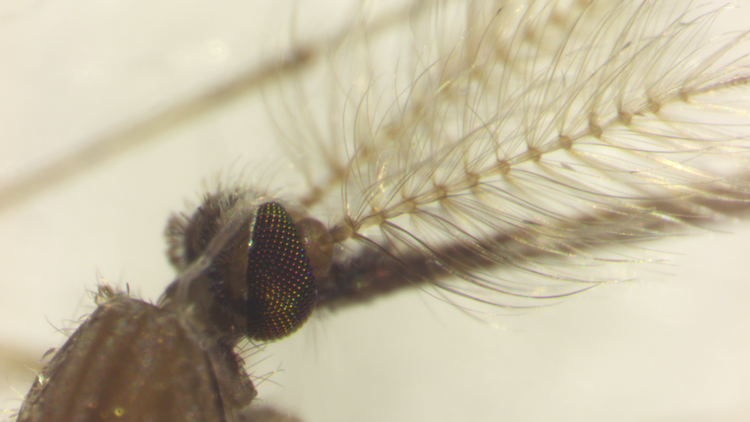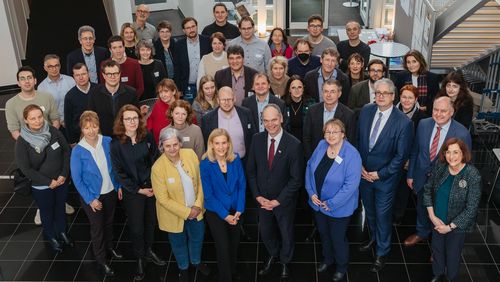The ability of males to hear the females is a crucial requirement of mosquito reproduction. As a result, the finding could help develop novel insecticides or mating disruptors to prevent diseases like malaria.
This article first appeared on the website of University College London.
In the study, published in Nature Communications, the researchers focused on a signalling pathway involving a molecule called octopamine, and demonstrated that it is key for mosquito hearing and mating partner detection, and so is a potential new target for mosquito control.
Male malaria mosquitoes acoustically detect the buzz generated by females within large swarms that form transiently at dusk. Because swarms are potentially noisy, mosquitoes have developed highly sophisticated ears to detect the faint flight tone of females amid hundreds of mosquitoes flying together. The molecular mechanisms by which mosquito males ‘sharpen their ears’ to respond to female flight tones during swarm time have been largely unknown.
The researchers looked at the expression of genes in the mosquito ear and found that an octopamine receptor specifically peaks in the male mosquito ear when mosquitoes swarm. The study found that octopamine affects mosquito hearing on multiple levels: it modulates the frequency tuning and stiffness of the sound receiver in the male ear, and also controls other mechanical changes to boost the detection of the female. The researchers demonstrated that the octopaminergic system in the mosquito ear can be targeted by insecticides.
Mosquito mating is a bottleneck for mosquito survival, so identifying new targets to disrupt it is key to controlling disease-transmitting mosquito populations.
Dr Andrés said:
“Octopamine receptors are of particular interest as they are highly suitable for insecticide development. We plan to use these findings to develop novel molecules to develop mating disruptors for malaria mosquitoes.
“Because mosquito hearing is required for mosquito mating, it can be targeted to disrupt mosquito reproduction. An increased knowledge of mosquito auditory neuroscience could lead to the development of mosquito mating disruptors for mosquito control.”
Dr Albert said:
“The molecular and mechanistic complexity of mosquito hearing is truly remarkable. With the identification of an octopamine pathway we are just beginning to scratch the outer surface of the tip of an iceberg. Future studies will without doubt deliver deeper insights into how mosquito hearing works and also provide us with novel opportunities to control mosquito populations and reduce human disease.”





